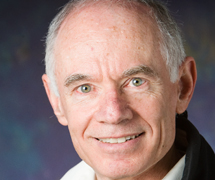MIDAS Seminar
Sparse Signal Recovery in Bilinear Inverse Problems

Much less is known about the solution of bilinear inverse problems (BLIPs) than about their linear counterparts. In signal processing, BLIPs arise in blind signal recovery, notably in blind deconvolution, with applications in blind image deblurring, blind channel equalization, speech dereverberation, and seismic data analysis. Another important example, is blind gain and phase calibration (BGPC), arising, e.g., in blind albedo estimation in inverse rendering, in sensor array processing with miscalibrated arrays, in multichannel blind deconvolution, and in synthetic aperture radar autofocus.
In certain cases, low dimensionality or sparsity constraints alleviate the ill-posedness of BLIPs.
However, until recently, existing theoretical analysis on uniqueness in these problems was rather limited. We describe our results on sample complexity that guarantees stable recovery in blind deconvolution and in BGPC under minimal requirements. We complement these theoretical results by describing practical recovery algorithms: (i) a guaranteed sparse blind deconvolution algorithm with optimal (up to log factors) scaling of the sample complexity, both in theory and in numerical experiments; and (ii) a guaranteed BGPC algorithm with optimal (up to log factors) number of samples per snapshot, and, in the subspace case, also optimal number of snapshots.
Based on joint work with Yanjun Li, Kiryung Lee, and Marius Junge.
Yoram Bresler received the B.Sc. (cum laude) and M.Sc. degrees from the Technion, Israel Institute of Technology, and the Ph.D de-gree from Stanford University, all in Electrical Engineering. In 1987 he joined the University of Illinois at Urbana-Champaign, where he is currently the GEBI Founder Professor of Engineering at the Departments of Electrical and Computer Engineering and Bioengineering, and at the Coordinated Science Laboratory. He is also President and Chief Technology Officer at InstaRecon, Inc., a startup he co-founded to commercialize breakthrough technology for tomographic reconstruction developed in his academic research. His current research interests include statistical signal processing and machine learning for signal processing, and their applications to inverse problems in imaging, and in particular compressed sensing, computed tomography, and MRI.
Dr. Bresler has served on the editorial board of several journals, including the IEEE Transactions on Signal Processing, the IEEE Journal on Selected Topics in Signal Processing, Machine Vision and Applications, and the SIAM Journal on Imaging Science, and on various committees of the IEEE. Dr. Bresler is a fellow of the IEEE and of the AIMBE. He received two Best Journal Paper Awards from the IEEE Signal Processing society, and two papers he coauthored with his students received the Young Author Best Journal Paper Award from the same society, in 2001 and 2016, respectively. He is the recipient of a 1991 NSF Presidential Young Investigator Award, the Technion (Israel Inst. of Technology) Fellowship in 1995, and the Xerox Senior Award for Faculty Research in 1998. He was named a University of Illinois Scholar in 1999, appointed as an Associate at the Center for Advanced Study of the University in 2001-2, and Faculty Fellow at the National Center for Supercomputing Applications (NCSA) in 2006. In 2016 he was appointed an IEEE Signal Pro
 MENU
MENU 
